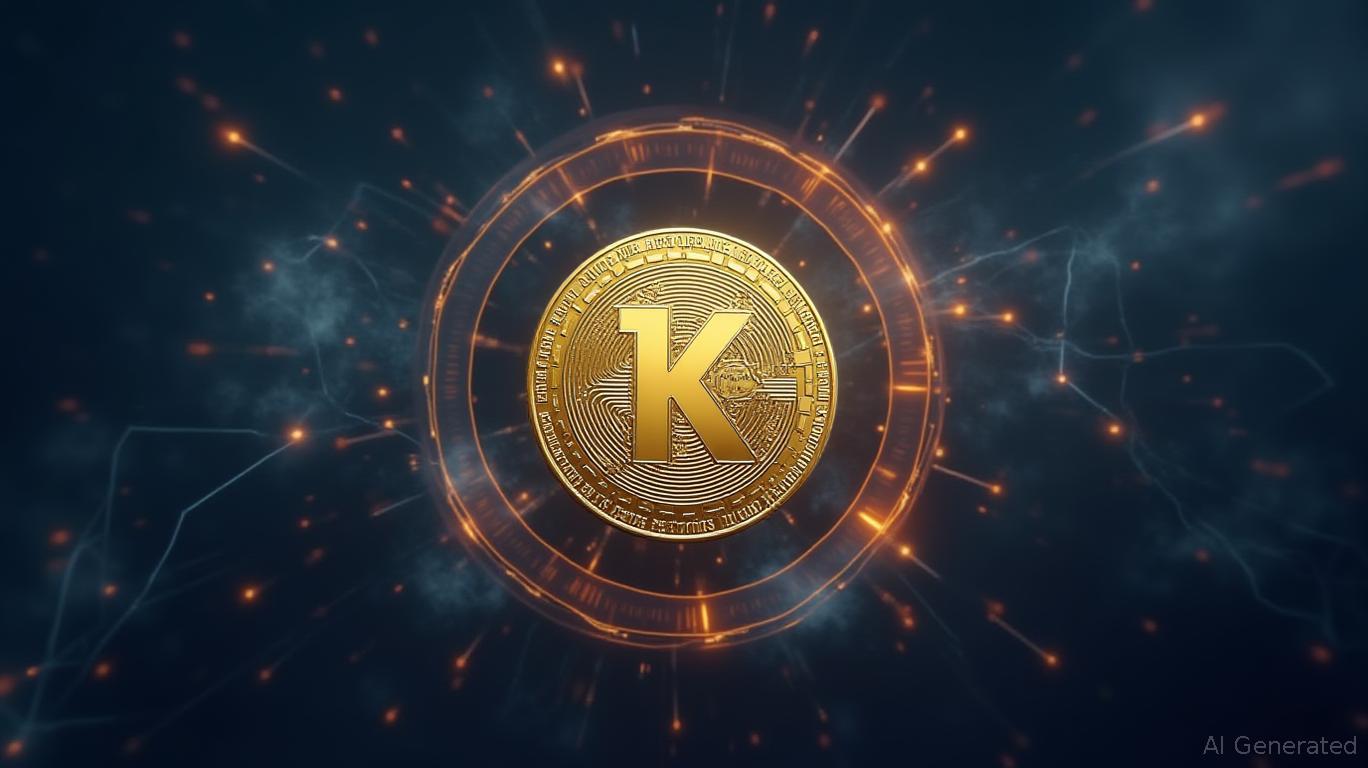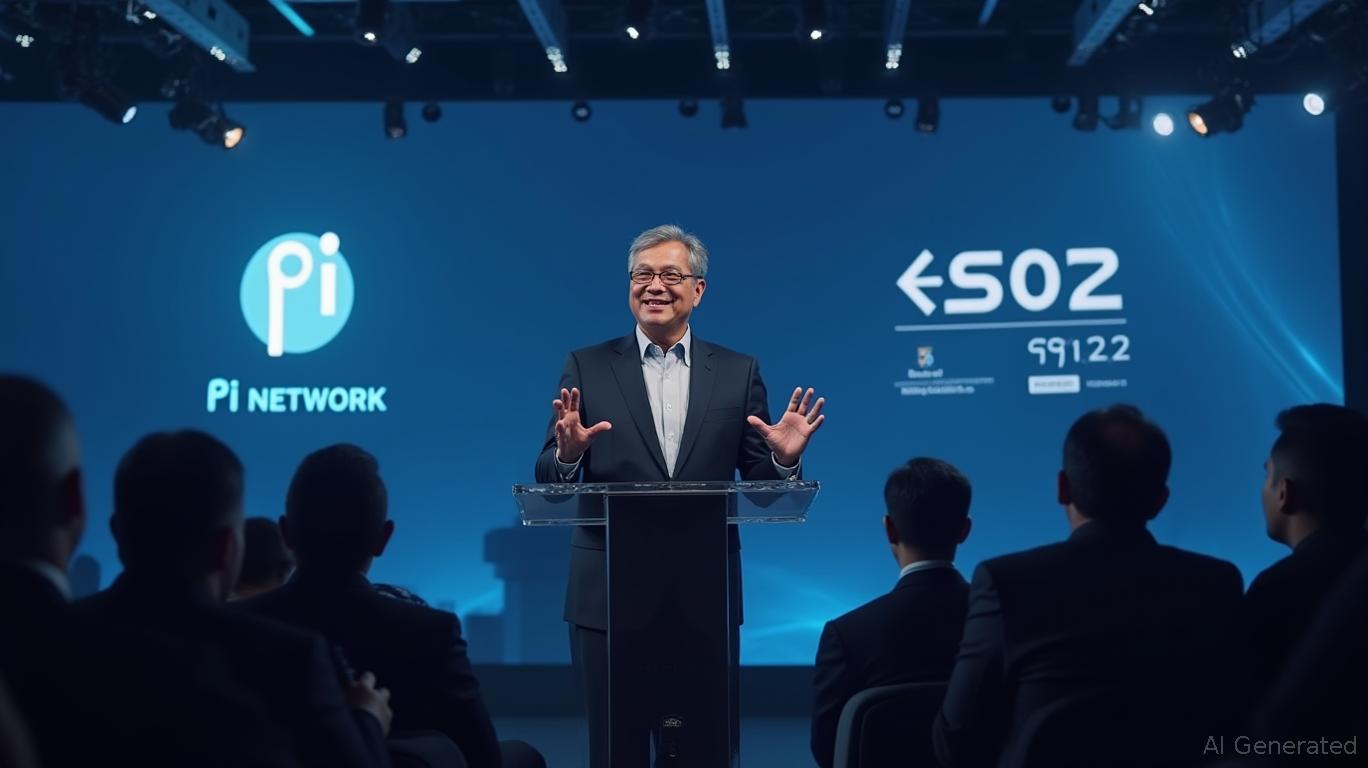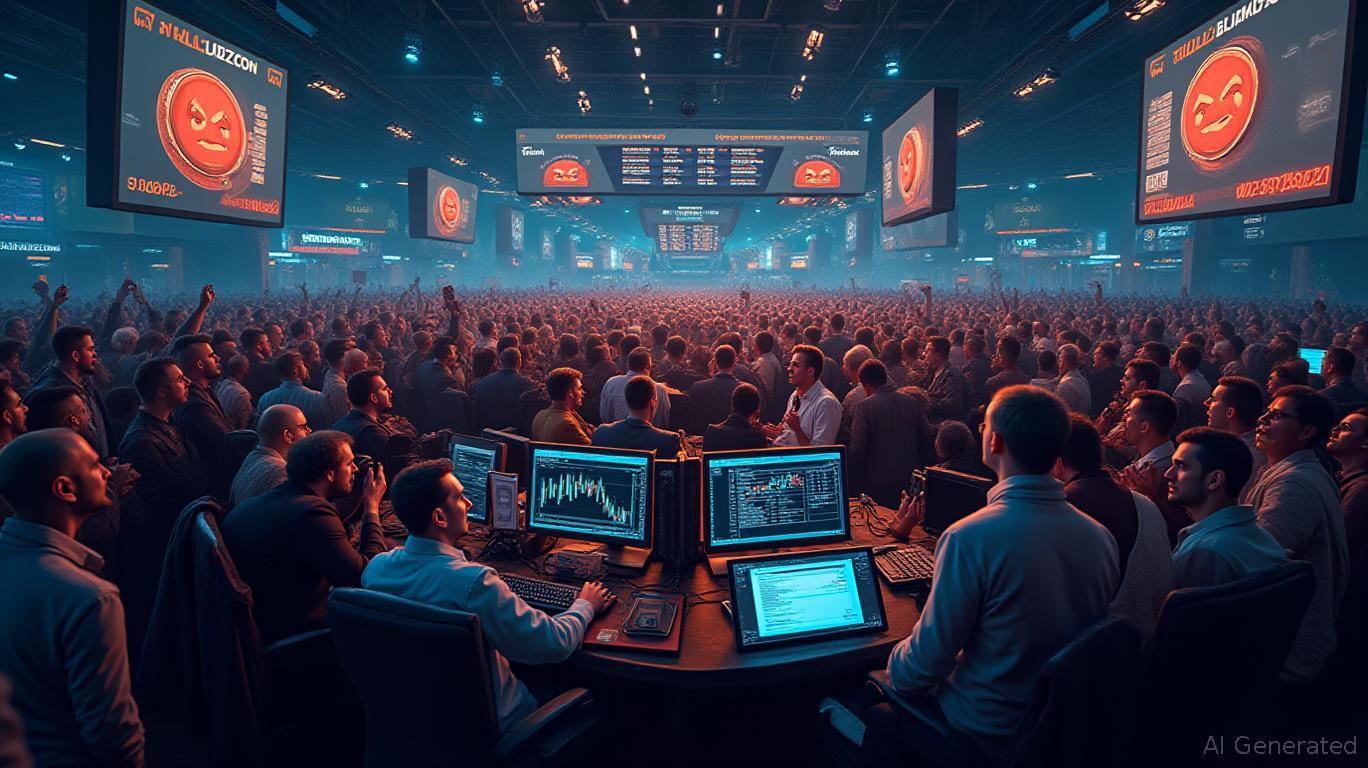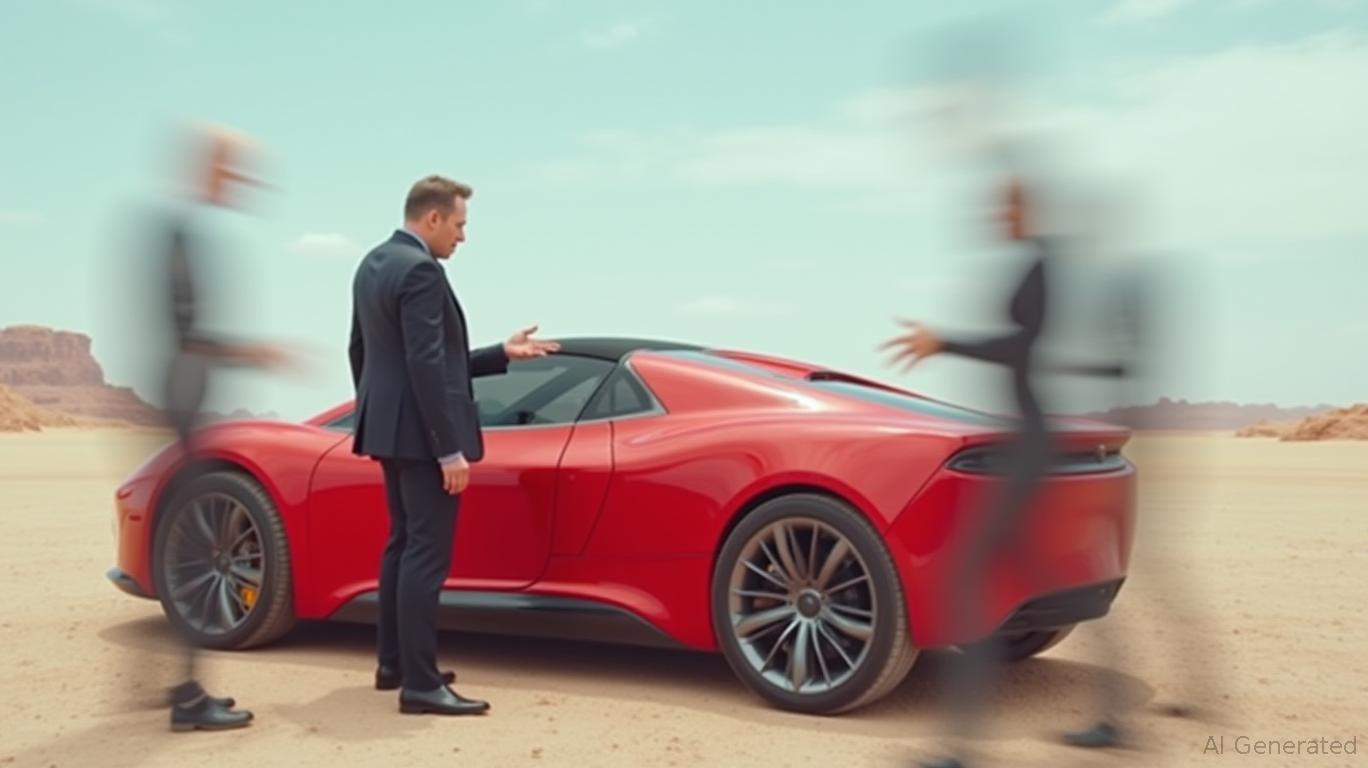Regulatory Concerns Intensify with the Introduction of South Korea's KRW1 Stablecoin into Arc's International Network
- Circle's Arc blockchain, designed as an "economic operating system," offers sub-second finality and USDC-based fees to streamline global finance. - South Korea's BDACS plans to deploy KRW1, a won-pegged stablecoin on Arc's testnet, bridging Korean markets to global stablecoin networks. - Arc's testnet has attracted 100+ institutions including BlackRock and Visa, aiming to redefine cross-border payments and asset tokenization. - Regulatory debates persist as South Korea's Bank of Korea proposes restrictin
Jeremy Allaire, CEO of Circle, has introduced the company's new Arc blockchain as "an economic operating system for the internet." This platform aims to modernize global financial systems by offering stable transaction fees, near-instant settlement, and compatibility with fiat-linked stablecoins. The concept is gaining momentum, with South Korean crypto custodian BDACS revealing plans to launch KRW1, a won-pegged stablecoin, on Arc's testnet. This move represents a notable advancement in bringing Korean financial technology into the worldwide stablecoin landscape, as reported by a
Since its testnet debut on October 28, 2025, Arc has drawn participation from over 100 organizations, including major players like BlackRock, Visa, Goldman Sachs, and State Street. This highlights Arc's potential to transform international payments and capital markets. By utilizing

The KRW1 stablecoin from BDACS, which is fully backed by the South Korean won, is intended to help Korean companies connect with global stablecoin platforms. The Busan-based custodian has entered into a memorandum of understanding (MOU) with
Arc is gaining traction due to its flexibility in serving both regulated and emerging markets. Stablecoin issuers from countries such as Japan, Brazil, Mexico, and the Philippines are already piloting their tokens on Arc, with KRW1 joining these efforts. This supports Allaire's claim that Arc is built to link "every local market to the global economy," a statement backed by its partnerships with leading financial firms and fintech companies, as outlined in the Circle press release.
Nonetheless, regulatory discussions continue. Sangmin Seo, chair of the Kaia DLT Foundation, criticized the Bank of Korea's (BOK) suggestion to limit issuance of won-backed stablecoins to banks, calling the idea "illogical." Seo argued for transparent regulations that apply to all issuers, whether banks or not, to encourage innovation while managing risks, as reported by Coinotag. The BOK maintains that allowing only banks to issue such stablecoins would better address anti-money laundering (AML) concerns under current laws.
Market trends demonstrate Arc's expanding role: stablecoins now have a combined market capitalization of $170 billion, with USDC alone exceeding $72 billion in circulation. Circle's recent collaborations, such as with ClearBank for European stablecoin transactions and Hyperliquid for DeFi integration, further strengthen its network, according to an
Allaire sees Arc eventually becoming a "shared, neutral layer of economic infrastructure" managed by a decentralized network of stakeholders. While Circle currently oversees the platform, the long-term vision is to shift toward community-led governance, keeping Arc open and responsive to global financial demands, as stated in the company's press release.
As the rollout of KRW1 continues, industry observers will be watching how regulations and market forces influence the adoption of stablecoins. For now, Arc's testnet is gaining momentum, supported by institutional involvement and strategic alliances, positioning it as a key force in the evolution of onchain finance.
---
Disclaimer: The content of this article solely reflects the author's opinion and does not represent the platform in any capacity. This article is not intended to serve as a reference for making investment decisions.
You may also like
Stellar News Today: Pi Network to Integrate Blockchain and Banking via ISO 20022 Standard by November 2025
- Pi Network plans ISO 20022 alignment by November 2025 to integrate with traditional banking systems, enhancing cross-border transaction efficiency and compliance. - The project partners with OpenMind to leverage its 350,000-node network for AI workloads, creating a decentralized computing grid for tasks like image recognition. - Market reactions show 16% price growth but remain cautious, contrasting Pi's mobile-first model with ISO-compliant rivals like Ripple and Stellar in the blockchain payments space

Ethereum Updates: Market Downturns Fail to Slow BullZilla’s Meme Coin Momentum
- BullZilla ($BZIL) surged 2,381% ROI in 2025, outpacing Ethereum and Pepe with $990K raised in presale. - Ethereum (-2.45%) and Pepe (-5.92%) faced corrections due to waning ETF enthusiasm and rising Treasury yields. - BullZilla's 24-stage tokenomics, staking rewards, and deflationary burns position it as a structured meme coin leader. - Trump-linked $TRUMP token's 46% weekly gain and Fight Fight's acquisition talks highlight meme sector's evolving dynamics.

BNB News Update: AI Agents Set to Propel $30 Trillion Economy Through x402 Transactions
- Coinbase's x402 protocol enables AI-driven micropayments via stablecoins, with BNB Chain and AEON leading adoption through programmable payment frameworks. - Recent data shows 932,000 x402 transactions weekly (34,300% growth), driven by Circle's USDC integration and BNB Chain's ecosystem acceleration efforts. - APRO-Pieverse cross-chain compliance partnerships and ERC-8004 agent identities address technical barriers, positioning x402 as foundational infrastructure for AI economies. - Analysts predict $30

Altman-Musk Roadster Dispute Highlights Tesla's Leadership Challenges and Reliability Issues
- Sam Altman and Elon Musk publicly clashed over Altman's canceled Tesla Roadster reservation, with Musk accusing him of selective storytelling after a 7.5-year wait. - The Roadster, delayed since 2017, faces customer frustration as no production timeline exists, mirroring issues with other Tesla projects like Cybertruck recalls. - Their feud resurfaces past OpenAI disputes, with Musk alleging Altman's profit-driven shift from nonprofit to public benefit corporation, which OpenAI denies. - The controversy
